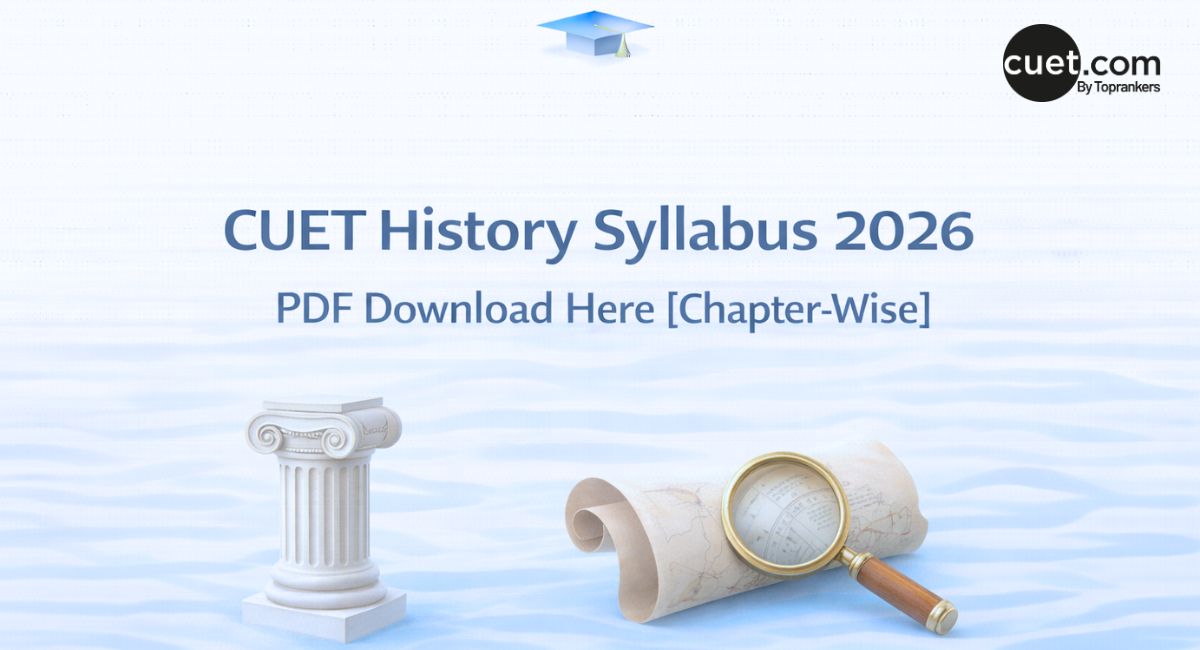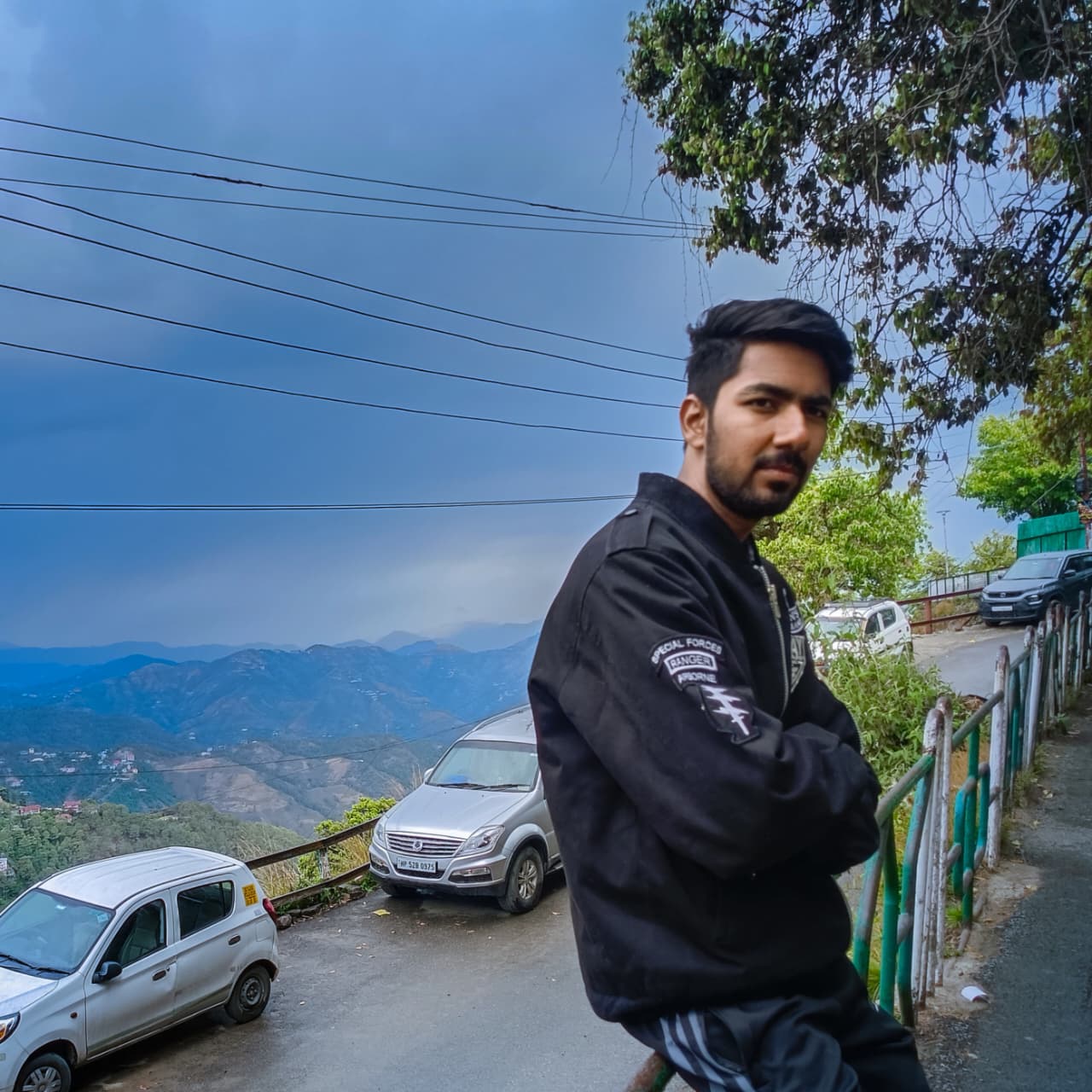CUET History Syllabus 2026 PDF Download Here [Chapter-Wise]
January 16, 2026
Overview: Did you know that a whopping 2,520 students scored a perfect 200/200 in History last year? Aiming for full marks yourself? Kickstart your preparation with the CUET History Syllabus 2026!
History remains an important subject domain in CUET, particularly for those aspiring to pursue humanities courses at the undergraduate level.
As the history syllabus for CUET is vast, encompassing different eras, cultures, and events, it's crucial to have a structured syllabus to guide your preparations.
This article not only provides the CUET History Syllabus but also offers invaluable preparation tips, ensuring you're well-prepared for the CUET 2026 exam.
CUET History Syllabus 2026 Overview
The CUET UG History syllabus is divided into 3 groups, namely -
- CUET Ancient History Syllabus 2026
- CUET Medieval History Syllabus 2026
- CUET Modern History Syllabus 2026
There will be one paper with 50 questions, all of which need to be attempted for a total of 250 marks.
CUET History 2026 Syllabus PDF Download Link
Are you looking for an official source to know the list of units for CUET History preparations? Click on the button below to download the PDF. 👇🏽
CUET History Syllabus 2026 [Unit-wise]
The unit-wise detailed history CUET 2026 History syllabus is given below:
1. CUET Ancient History Syllabus 2026
These are the units under Ancient History.
UNIT 1: The Story of the First Cities: Harappan Archaeology
- Preparation Tips: Focus on understanding the early urban centres and the Harappan civilisation. Study archaeological reports and discoveries. Emphasise the significance of major sites.
- Key Points: Urban planning, societal structure, and major artefacts.
Check: CUET Cut-Off Trends
UNIT 2: Political and Economic History: How Inscriptions Tell a Story
- Preparation Tips: Learn about the political and economic history from the Mauryan to the Gupta periods. Study important inscriptions like the Ashokan edicts and Gupta land grants.
- Key Points: Major political events, economic policies, and inscription interpretations.
UNIT 3: Social Histories Using the Mahabharata
- Preparation Tips: Explore social issues such as caste, class, kinship, and gender through the Mahabharata. Understand its transmission and publication.
- Key Points: Social structure, key characters, and historical context.
UNIT 4: A History of Buddhism: Sanchi Stupa
- Preparation Tips: Review religious histories, focusing on Buddhism. Study the Sanchi Stupa and its sculptures.
- Key Points: Buddhist teachings, iconography, and historical interpretations.
2. CUET Medieval History Syllabus 2026
The units included in the CUET history domain syllabus for Medieval History are:
UNIT 5: Medieval Society through Travellers’ Accounts
- Preparation Tips: Analyse social and cultural life through the accounts of travellers like Alberuni, Ibn Battuta, and Bernier. Understand their perspectives and purposes.
- Key Points: Social customs, trade routes, and traveller observations.
UNIT 6: Religious Histories: The Bhakti-Sufi Tradition
- Preparation Tips: Study religious developments during the medieval period, focusing on Bhakti and Sufi traditions. Examine how their compositions have been preserved.
- Key Points: Key figures, teachings, and historical impact.
Check: CUET Sample Papers
UNIT 7: New Architecture: Hampi
- Preparation Tips: Learn about the architecture of the Vijayanagar period, including temples, forts, and irrigation systems. Study how these structures reflect the political system.
- Key Points: Architectural styles, historical significance, and discovery accounts.
UNIT 8: Agrarian Relations: The Ain-i-Akbari
- Preparation Tips: Understand agrarian relations and changes during the 16th and 17th centuries through the Ain-i-Akbari. Focus on its compilation and translation.
- Key Points: Agrarian policies, Mughal administration, and economic impacts.
Check: CUET Political Science Syllabus 2026
UNIT 9: The Mughal Court: Reconstructing Histories through Chronicles
- Preparation Tips: Study the political history of the Mughal court using chronicles like the Akbarnama and Padshahnama. Focus on their production and transmission.
- Key Points: Mughal politics, court life, and historical interpretations.

3. CUET Modern History Syllabus 2026
The units included in the CUET exam history syllabus in Modern History are:
UNIT 10: Colonialism and Rural Society: Evidence from Official Reports
- Preparation Tips: Analyse the lives of zamindars, peasants, and artisans during the colonial period using official reports. Understand the impact of East India Company policies.
- Key Points: Rural economy, colonial administration, and social changes.
UNIT 11: Representations of 1857
- Preparation Tips: Study the events of the 1857 rebellion, focusing on its representation in contemporary accounts and pictures. Understand how it shaped British perceptions.
- Key Points: Key events, significant figures, and historical narratives.
Check: CUET English Syllabus 2026
UNIT 12: Colonialism and Indian Towns: Town Plans and Municipal Reports
- Preparation Tips: Explore the growth of major Indian towns during the colonial period using town plans and municipal reports. Focus on cities like Mumbai, Chennai, and Kolkata.
- Key Points: Urban planning, colonial influence, and city development.
UNIT 13: Mahatma Gandhi Through Contemporary Eyes
- Preparation Tips: Study the nationalist movement from 1918 to 1948, focusing on Gandhian politics and leadership. Analyse contemporary newspaper reports.
- Key Points: Key events, Gandhi's role, and media portrayal.
Check: CUET Participating Colleges 2026
UNIT 14: Partition through Oral Sources
- Preparation Tips: Understand the history of the 1940s, focusing on nationalism, communalism, and Partition. Study oral testimonies from Punjab and Bengal.
- Key Points: Personal accounts, causes and effects, and historical analysis.
UNIT 15: The Making of the Constitution
- Preparation Tips: Learn about the making of the Indian Constitution and the debates in the Constitutional Assembly. Focus on the post-independence period.
- Key Points: Key debates, constitutional provisions, and historical context.
CUET History Question Paper Pattern 2026
Now that you know the CUET History syllabus, you must know the CUET exam pattern to have a clear understanding of the marking scheme and questions:
| Particulars | Description |
| Exam Medium | English, Hindi, Assamese, Tamil, Telugu, Kannada, Malayalam, Odia, Bengali, Marathi, Gujarati, Punjabi and Urdu |
| Total Questions | 50 |
| Questions needed to be answered | 50 |
| Total Marks | 250 |
| Marking Scheme | 5 marks for each right answer -1 for each wrong answer |
| Question Type | MCQ |
| Exam time duration | 60 minutes |
Best Preparation Books for CUET History Syllabus 2026
The expert-recommended CUET Preparation books for preparing the history syllabus for CUET are:
- NCERT Themes in Indian History – I
- NCERT Themes in Indian History – II
- NCERT Themes in Indian History – III
- Go To CUET (UG) Guide for History by Disha Publication
- CUET (UG) History Guide by Arihant Experts
- India’s Ancient Past by R.S. Sharma
By combining a strategic study plan, consistent practice, and a thorough understanding of the NCERT textbooks, you not only conquer the CUET History Syllabus 2026 but also develop an appreciation for the subject.
Remember, every historical event is a building block of our world, and comprehending them offers invaluable insights into a living society.
Key Takeaways
- The CUET History Syllabus 2026 spans 15 units, covering a wide range of historical periods and topics.
- You are required to attempt 50 out of 50 questions in the CUET History exam.
- NCERT textbooks should be your primary study material for the CUET syllabus for History preparation.
- Focus on strengths while covering the entire CUET History syllabus and practice with CUET Mock Tests 2026 and previous years' question papers.
- Stay updated with contemporary historical debates and discussions.
Frequently Asked Questions
What modern historical events are included in the CUET ug history syllabus?

What is the significance of the unit on Agrarian Relations in the CUET History syllabus?

How does the history syllabus for CUET incorporate the study of the Buddhism?

What kind of historical sources are studied in the CUET History syllabus?

Which periods of Indian history are emphasized in the CUET History syllabus?

What topics are covered in the CUET History syllabus?

Is the History Syllabus for CUET the same for all universities?

1689072975.png)






SHARE